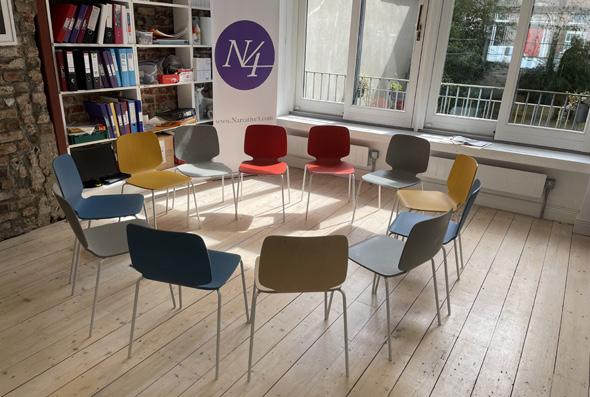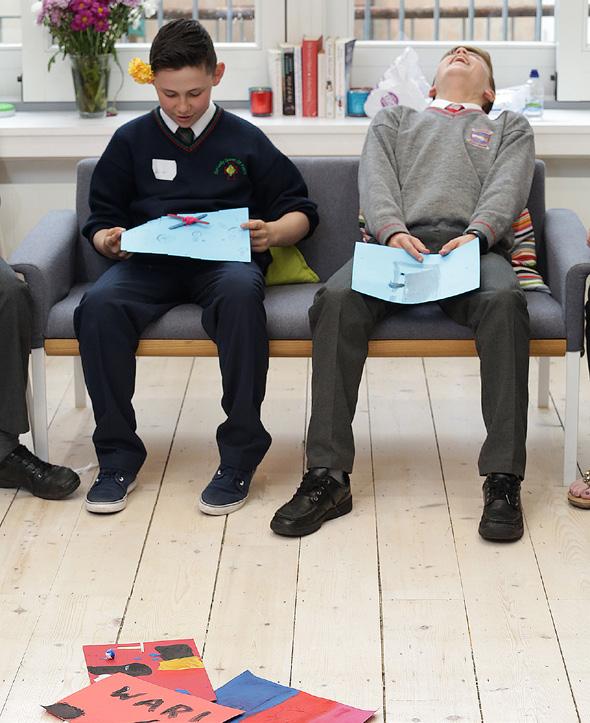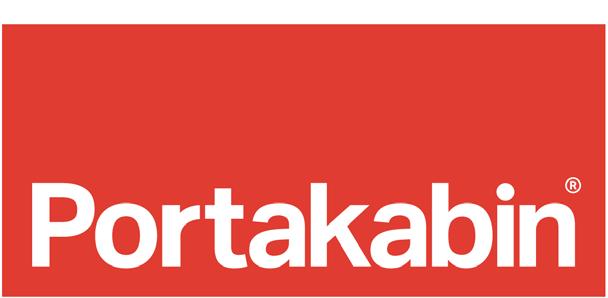
5 minute read
FEATURE: Narrative 4 Empathy Education
Narrative 4 Empathy Education
"EMPATHY education is needed in our secondary schools to help our young people develop into caring, happy successful adults," says Dr Sara Jane Flynn, a senior child and educational psychologist who has recently joined the team at Narrative 4 Ireland.
Advertisement
The registered Irish charity replicated a US model of empathy education in 2016 and have been rolling it out in Ireland since. The registered Irish charity trains and supports post-primary school teachers and youth workers to deliver the programme to young people.
Vital life skills
"We train educators to deliver the Story Exchange programme, which is a circle based activity that can be delivered in any classroom.
It takes 10 CPD hours online to train and then they have access to a facilitator toolkit, lesson plans and recognised by NCCA junior cycle unit. We also run regular support and mentoring sessions for practitioners".
Empathy education cultivates vital life skills in young people. It increases awareness of diversity, improves social skills and gives young people a sense of belonging. The young people who take part in the Story Exchange learn to connect with their peers in a unique manner.
A student who took part in the programme from the Gaelcholáiste Luimnigh echoed these sentiments when she said: "I learned that everyone is vulnerable at times and everyone is going through something similar. After going through the N4 Programme, I am definitely more open to telling people how I feel. I realised that people are there to get you through hard times and are here to listen to you."
The Story Exchange is an evidence-based wellbeing tool that can be utilised in the classroom to cultivate kindness and peer support. A Yale Study in 2016 found that students in US schools that ran the N4 programme felt more accepted, cheerful and confident than schools not running the programmes. 1
There was also a noted decrease in bullying in the N4 Schools. Caoimhe Lillis trained as Story Exchange facilitator in 2018, while working as a secondary school teacher. "The Story Exchange programme hits 7 of the key skills and 5 of the wellbeing indicators in the new Junior Cycle. 2&3 Students really connected over exchanging stories and we all saw each other in a new light."
Increasing skill competence of teachers
Our contemporary post primary curriculum is no longer solely an academic one, teachers are now expected to have the social and emotional welfare of their students as much in mind as academic targets and exam preparation.
The Narrative 4 training programme which includes a module on skilful interventions supports the development of key facilitation skills which make up the teachers toolbox and increases teachers' competence in supporting ever increasingly important areas such as attachment friendly practices and supporting young people with ACES (adverse childhood experiences).
The need to facilitate conversations which require more than the traditional didactic method is growing and with the new Relationships and Sexual education module on the horizon which will be informed by a more holistic approach to the topic, teachers will benefit from the skills gained in facilitating conversations rather than leading them.

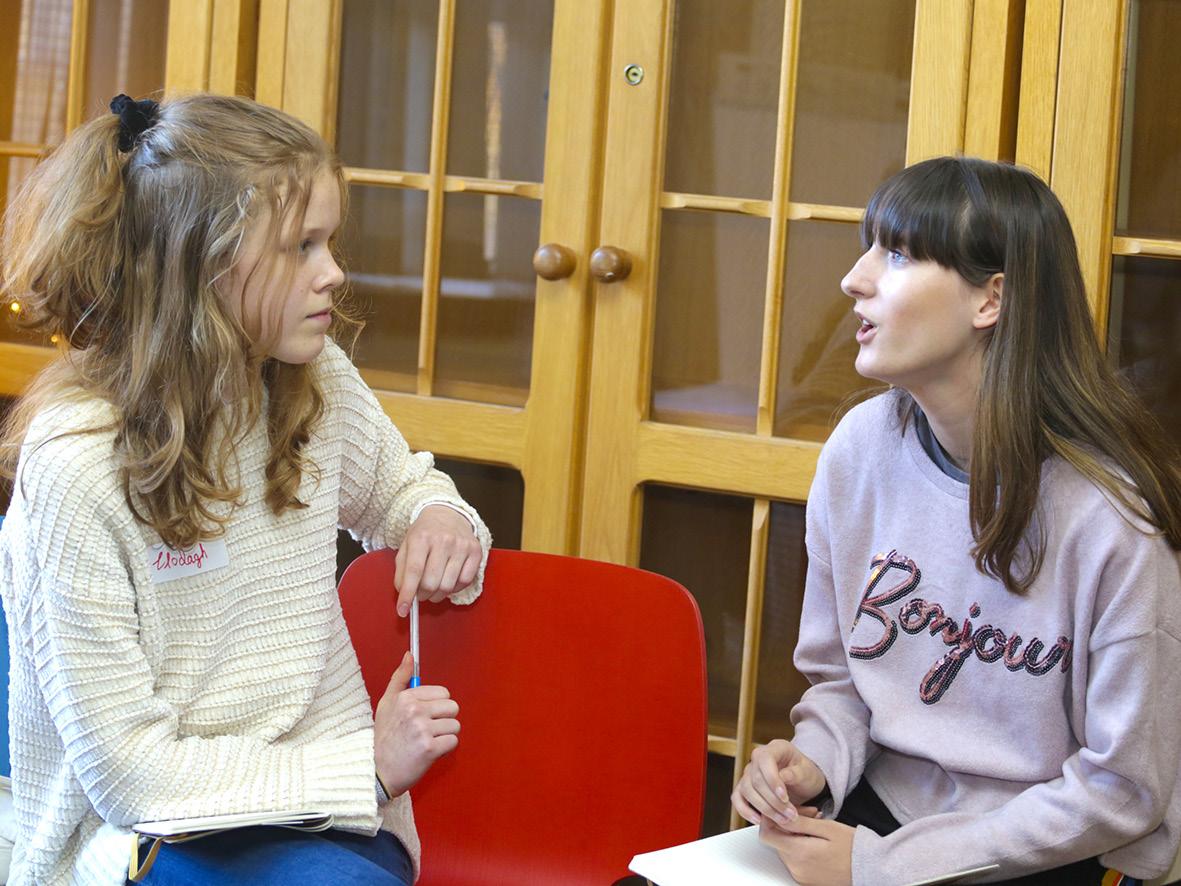
"I learned that everyone is vulnerable at times and everyone is going through something similar"
"It can form part of a JCSE program, RSE at the upper levels, supporting integration and connection of first years, supporting disenfranchised groups within the school community and many more"
"Stories can shape our future with research showing that telling stories of struggles that turn out well can give people the hope they need"
A Story Exchange underway in Thomond College Limerick
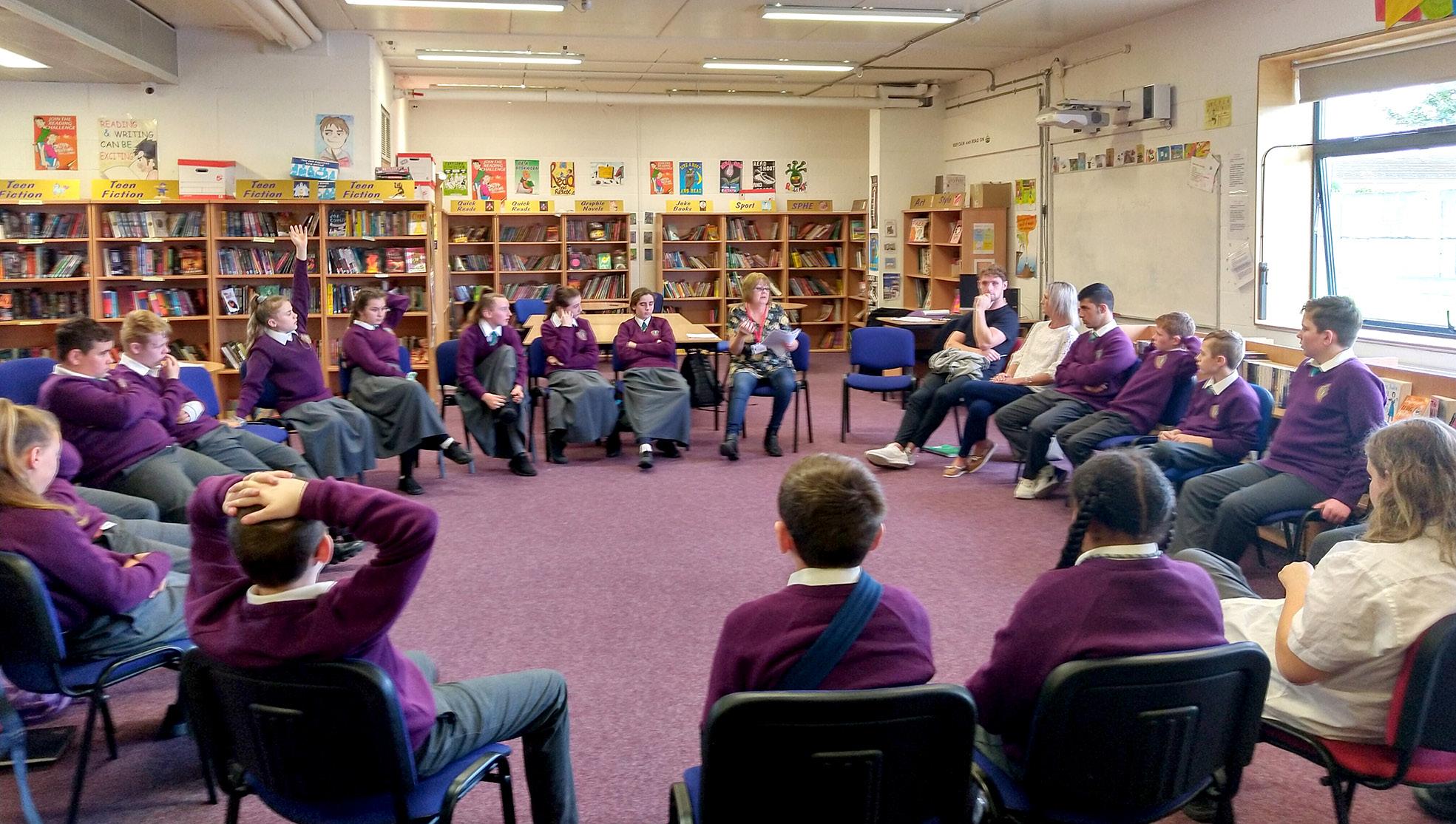
How to use the technique in your school
Once trained, the Narrative 4 Facilitator can explore different ways to use the Story Exchange to address whatever needs are arising in their school community.
The Regional Director of Narrative 4 Ireland Dr James Lawlor says: "The Story Exchange can support wellbeing, target exclusion, address bullying issues. It can form part of a JCSE program, RSE at the upper levels, supporting integration and connection of first years, supporting disenfranchised groups within the school community and many more."
However it is not only the students who can benefit from the process, staff well-being and staff cohesion can be developed through a two hour story exchange. Teachers have used the Story Exchange to connect their students with other young people in other countries using online virtual platforms like Zoom.
Paula Coakley from Kenmare Community School has used the virtual Story Exchange to connect up with students in Kentucky in the USA. "Narrative 4 has enabled my students to broaden their horizons and learn about other cultures and about other communities living in their locale. I've used the Story Exchange as well to connect my students with older people"

Sad and stressed
Experts agree that Empathy Education is a crucial skill for young people. Dr Michele Borba has said that: "while we may be producing a smart, self-assured generation of young people, today's kids are also the most self-centred, saddest, and stressed on record".
Her solution to this pandemic of poor mental health is developing young people"s empathy skills. The challenges posed by Covid-19 can be alleviated through the power of social connection. The Story Exchange programme achieves the NEPS guidelines for students reconnecting after covid 19 closure. "Stories can shape our future with research showing that telling stories of struggles that turn out well can give people the hope they need to live productive lives in the aftermath of major life challenges."4
More information on Narrative 4 and the Story Exchange Facilitator training can be found on Narrative4.ie
Online trainings run weekly with various dates available. Training cost is subsidised by Rethink Ireland. The training costs €150 with a further 20% off (€120) for Education Reference Guide readers: Quote EDUGUIDE in application.
1) EMOTIONAL REVOLUTION: Empowering Young People to create schools and communities where emotions matter; How do US High School students feel at School? –The Yale Center for Emotional Intelligence, August 2016 2) NCCA, (2012) ‘Key Skills of Junior Cycle’, Dublin: National Council for Curriculum and Assessment. 3) NCCA, (2017) ‘Junior Cycle Wellbeing Guidelines’, Dublin: National Council for Curriculum and Assessment. 4) NEPS, (2020) ‘Supporting the Wellbeing of the School Community: Returning to School after Covid-19 School Closure’, Dublin: National Educational Psychological Services.
The Story Exchange draws on the principles of circle-work and has many similarities with other complementary techniques such as restorative justice
